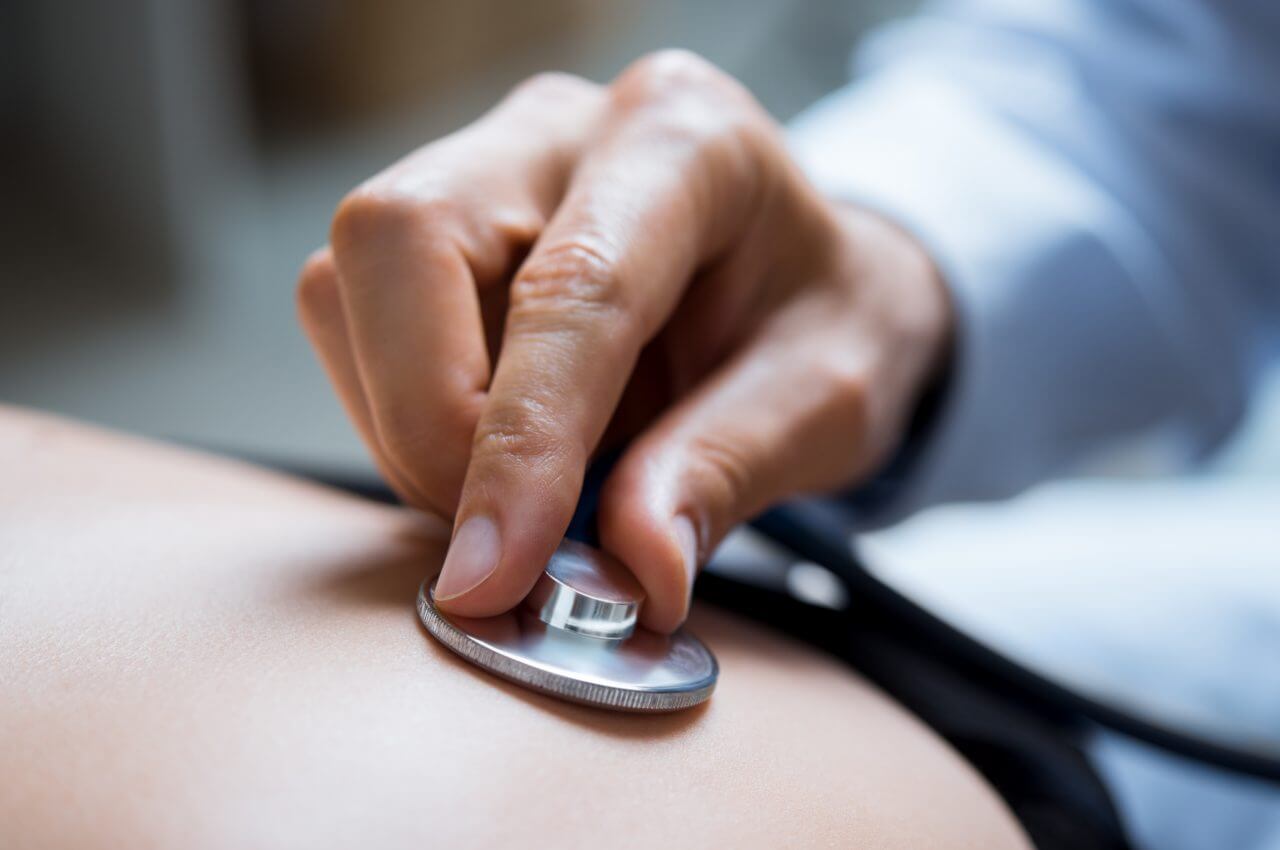Why Do I Have Heartburn?

Feeling the burn is great when you’re running or lifting weights. Not so much when you’re trying to sleep. But that’s what heartburn feels like a fire pit in the middle of your chest.
“Heartburn is a symptom; it’s never normal,” says Alex Howard, MD, a gastroenterologist at Baptist Health Medical Group in Lexington.
Heartburn might not be normal, but it certainly is common. More than 60 million Americans experience heartburn at least monthly; 15 million people have it daily. If you’re one of those people, here’s what to know.
Prevent Heartburn from Happening
Bypassing trigger foods and adopting other lifestyle changes might be enough to help some avoid heartburn. Here are some tips to consider:
- Lose weight. Extra pounds can make heartburn worse. For his patients carrying extra weight, Dr. Howard recommends a 10 percent weight loss in a year.
- Skip smoking. If you smoke, quit.
- Loosen up. Wear comfy, loose clothing. If you feel indigestion, loosen your belt or change clothes to ease the pressure.
- Watch what you eat. Limit your portion sizes, as overeating can lead to heartburn. You should also pay attention to what foods leave you miserable, and try to avoid them. Acidic foods and juices, citrus juices, for instance, may trigger heartburn. “Caffeine, alcohol and cigarettes also increase the risk of acid reflux.” Red wine, chocolate, and fatty foods are problematic too.
- Elevate after you eat. If you’re prone to heartburn, try not to eat within three hours of bedtime, and raise your head six to eight inches when sleeping, either with pillows or with blocks under the head of the bed.
How to Treat Heartburn
“If your heartburn is infrequent and a result of an occasional overindulgence, go with Tums or another antacid,” Dr. Howard says. “The calcium carbonate acts as a buffer.” Additionally, over-the-counter medications Pepcid and Zantac can be taken for immediate relief of symptoms. (Products such as Tums and Rolaids neutralize stomach acid, while Pepcid and Zantac reduce acid production.)
But if you are reaching for medication a few times a week, it’s time to look for more proactive solutions.
“The first step is to make sure someone experiencing heartburn is truly suffering from gastric reflux, the most common cause,” Dr. Howard says. When a patient comes to him with new heartburn problems after about age 45, Dr. Howard often conducts an upper endoscopy test to help pinpoint the cause, and rule out other conditions, such as problems with your heart. Severe heartburn and heart attack can be hard to tell apart.
If lifestyle changes don’t work, relief might lie in potent prescription-strength acid suppressors called proton-pump inhibitors, or PPIs. (Think Nexium and Prilosec, among others, which are usually taken daily.) These PPI drugs are very effective at treating heartburn, but there are concerns about their long-term use. Some studies suggest the drugs might raise the risk of kidney disease, osteoporosis, and deficiencies of magnesium and B-12, among other problems.
Patients should weigh the risks and benefits before taking these drugs. Doctors don’t think that there is strong enough evidence of a problem that they deprive somebody of a beneficial treatment (from PPI drugs) for a potential side effect. They also note that while they don’t think everyone with gastric reflux needs a PPI, there are those who definitely benefit from it.
The doctors keep close tabs on patients taking PPIs, and watch for measurable changes that could indicate a problem. And for people whose heartburn doesn’t respond to medication, there are surgical options.
When to be Concerned about Heartburn
Everyone has heartburn once in a while (especially after eating large meals), but if you have it daily and it’s accompanied by other symptoms, it could be something more serious.
You should be concerned if:
- You have severe chest pain. Heartburn that comes with chest pain, shortness of breath, weakness, irregular heartbeat, and pain in your arm, shoulder or face may not be heartburn. It may be a heart attack or other severe cardiac event. For these symptoms, call 911 immediately.
- Antacids don’t help. If antacid medications don’t soothe your heartburn, or if they never worked in the first place, your heartburn may have progressed to GERD (gastroesophageal reflux disease). GERD is a condition in which acid that belongs in your stomach backs up into your esophagus. The acid irritates and inflames the lining of the esophagus, causing a burning sensation. If you have heartburn that occurs several times a week, for more than two weeks, then it’s time to see your doctor.
- You have unintentional weight loss or stomach symptoms. If you’re losing weight quickly without trying, have frequent nausea and/or diarrhea, are vomiting blood, or notice bloody stool, seek immediate medical attention. These symptoms can signal a whole range of illnesses from cancer to food poisoning.



